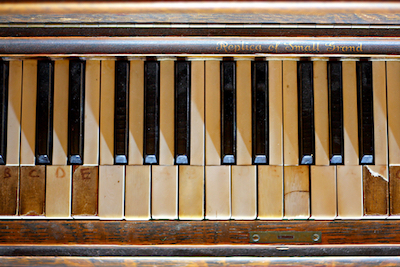A good piano is designed to be a part of your family for generations. But in order for it to stay high quality for that long, it needs a little maintenance.
While bringing in a technician from time to time to tune and regulate your piano is a good idea, there are a few things you can do too to keep it in good health.
1. Stop Closing Your Keylid
Pianos have keylids for a good reason. They help keep dust and air particles off of your keyboard, allowing grime to form between the keys. Keeping the keylid closed is a good idea – 70 percent of the time. If the keylid is down all the time when not in use, mold growth can occur inside the piano. This is especially true if your piano is kept in a dark place, or if the surrounding area is humid.
A good practice is to leave it up a couple of times each week. Indirect sunlight and proper air circulation will reduce the chance of mold growth and keep the innerworkings of the piano in good shape. Be sure to dust with a soft cloth or a soft vacuum attachment on a regular basis.
2. No Drinks At The Piano
Liquid can be an enemy in more ways than one. Setting a drink on the finish of a piano can cause unsightly rings and stains. But if the liquid spills and seeps between the piano keys and reaches the interior, it can cause major damage. If you do spill, wipe up excess liquid from the keys immediately. Try not to press the keys while wiping to prevent liquid from seeping inside. If liquid does slip between the keys, have a technician evaluate the situation as soon as possible.
3. Regulate The Environment
Before you decide on a final resting spot for your piano, evaluate the environment. Temperature can be an enemy of your piano’s condition. Cold can weaken delicate parts. Heat can negatively affect the strings. Somewhere around 70 to 72 degrees is best. While your room temperature may change due to the seasons, be sure you keep your piano away from exterior walls, where fluctuations occur the most. Avoid drafts, air ducts, or windows and doors that can allow fluctuations. Also avoid direct sunlight, which can heat your piano to very high temperatures, impacting not only the interior workings, but also the finish of the piano too.
Humidity is equally as important as temperature. High humidity levels can warp the wood; low humidity levels can cause cracking. To ensure proper humidity levels in the room, consider a humidifier or dehumidifier depending on your needs. A 40 percent humidity level is ideal. Be sure to adjust, especially in volatile weather patterns.

